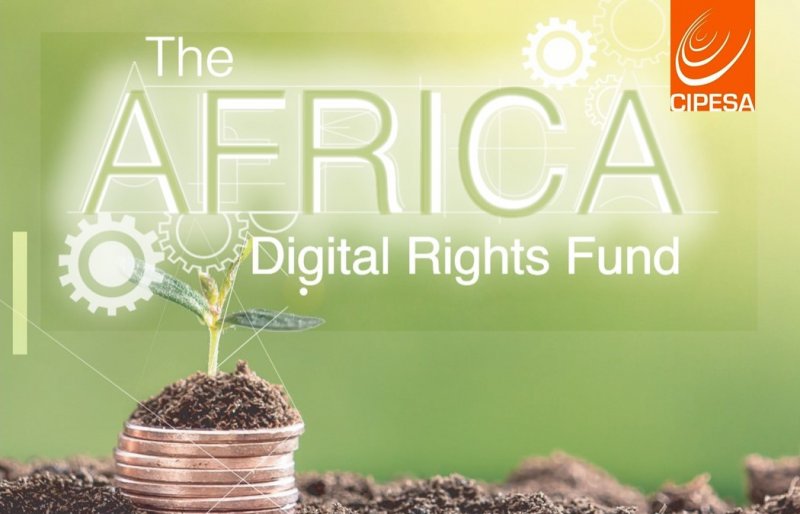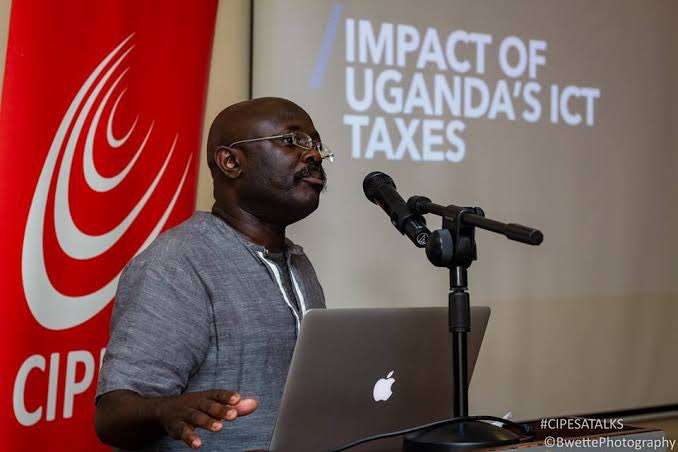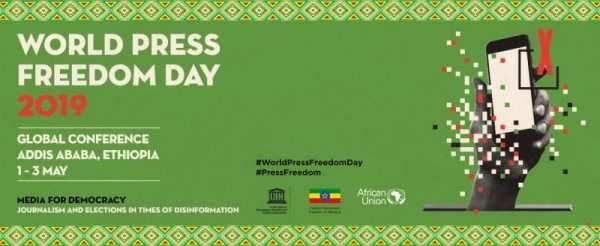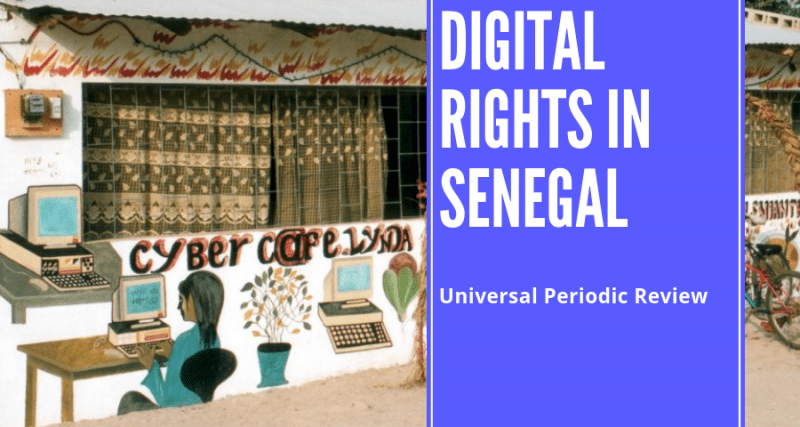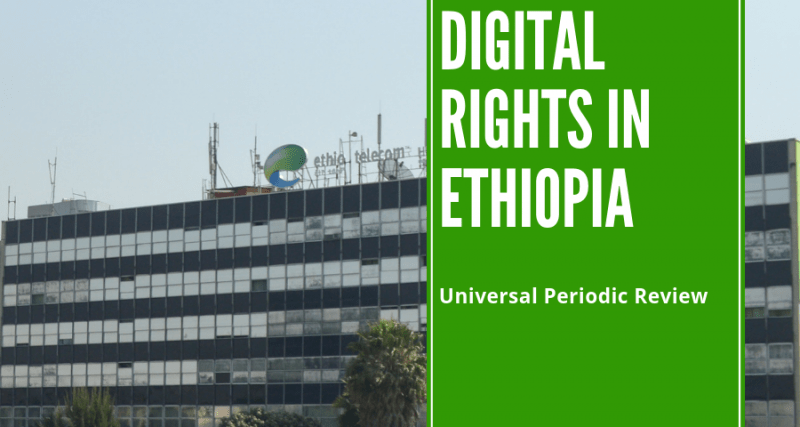Call for Applications |
With a quarter of Africa’s population using the internet and with 76 mobile phone connection for every 100 individuals, Information and Communications Technology (ICT) has become pivotal to improving livelihoods and promoting human rights on the continent. However, with rising digital rights violations such as arrests and intimidation of internet users, network shutdowns, and a proliferation of laws and regulations that hamper internet access and affordability, the potential of digital technologies to catalyse free expression and civic participation or to drive innovation is under threat in Africa. Yet many organisations working to defend and promote digital rights face limitations of reach, skills, resources, and consistency in engagement in this area.
To address this, the Collaboration on International ICT Policy for East and Southern Africa (CIPESA) has established the Africa Digital Rights Fund (ADRF) to offer flexible and rapid response grants to select initiatives in Africa to implement activities that advance digital rights, including advocacy, litigation, research, policy analysis, digital literacy and digital security skills building.
Assessments have found that whereas digital rights advocacy in the region has a large pool of interest, ”it is very shallow, spread very thinly and difficult to sustain”. The policy and practice developments in the region, coupled with the challenges faced by civil society organisations, necessitate partnerships that bring together various competences for advancing digital rights. The ADRF has been developed to strengthen local capacity in evidence-based research, collaborative advocacy and impactful policy engagements responsive to regulatory and practice developments that affect internet freedom in the region.
The ADRF grant amounts will range between US$ 1,000 and US$ 10,000 based on the need and scope of the proposed intervention. The grant period will not exceed six months with an average of 15 grants to be awarded per year.
The Fund will benefit small organisations, including those that do not qualify for support from most funders for lack of registration and institutional capacity to develop applications and manage big projects. It will also benefit organisations and initiatives that need rapid response support to respond swiftly to emerging issues that can not wait for many funders’ lengthy application procedures.
Applications are now open for the period July-December 2019. The deadline for submissions is Friday May 31, 2019. Read more about the Fund and the eligibility criteria here. The application form can be accessed here.
CIPESA Executive Director Detained At Tanzania Airport – UPDATE
Statement |
Dr. Wairagala Wakabi, the Executive Director, of the Uganda-based Collaboration on International ICT Policy for East and Southern Africa (CIPESA) has been detained, upon arrival, at the Julius Nyerere International Airport in Dar es Salam, Tanzania earlier today. Immigration authorities have declined to state the basis of his arrest.
Dr. Wakabi had been invited to Tanzania to participate in the annual commemoration of the Tanzania Human Rights Defenders’ Day hosted by the Tanzania Human Rights Defenders Coalition (THRDC) on April 28, 2019. Under the theme “Claiming and Protecting Online Civic Space for Promotion and Protection of Human Rights in Tanzania”, the event is to be preceded by a two-day workshop aimed at engaging civil society organizations, online journalists and human rights activists on how to safely use online platforms for promotion and protection of human rights.
According to lawyers from the THRDC, authorities have blocked their access to Dr. Wakabi, stating that he is under interrogation – the outcome of which will determine whether he is granted entry into Tanzania or deported back to Uganda.
“We are currently at the airport following the matter. They have denied us access to him. We strongly condemned this untimely and unnecessary detention of our guest from our neighbouring country Uganda. We call upon all members of the East African Community (EAC) to condemn this tendency of disturbing citizens of EAC when travelling within the subregion,” stated Onesmo Olengurumwa, the THRDC National Coordinator.
CIPESA is among the organisations nominated by THRDC to receive an award for is regional work in promoting human rights online to be handed out during the commemoration.
CIPESA condemns the detention of Dr. Wakabi and calls upon the authorities to unconditionally release him.
UPDATE: After hours of interrogation, Dr. Wakabi has been deported back to Uganda this evening. However, lawyers remained unable to establish the basis of the detention and deportation. They report that authorities denied him entry into Tanzania on grounds of “national interest”.
Mapping the Impact of Digital Technology from Network Disruptions to Disinformation
By Rocio Campos |
Signed by African journalists during a United Nations Educational, Scientific and Cultural Organization (UNESCO) seminar in May 1991, the Declaration of Windhoek is a statement of free press principles that led to the proclamation of World Press Freedom Day (WPFD) on 3 May by the UN General Assembly in 1993. This year, the Global Network Initiative(GNI) is proud to join UNESCO, the African Union, and the Government of Ethiopia for the 26th celebration of WPFD in Addis Ababa under the theme, “Media for Democracy: Journalism and Elections in Times of Disinformation.”
On 3 May, GNI Policy Director Jason Pielemeier and representatives from GNI members the Committee to Protect Journalists (CPJ), Collaboration on International ICT Policy for East and Southern Africa (CIPESA), Facebook, and the International Media Support (IMS), together with the Ethiopian journalist Abel Wabella will participate in the session: “Understanding Electoral Information Flows: Mapping the Impact of Digital Technology from Network Disruptions to Disinformation.” This workshop will build on an earlier colloquium organized by GNI and UNESCO titled Improving the Communication and Information Ecosystem to Protect the Integrity of Elections.
In 2019, 62 countries will elect leaders who will govern 3.28 billion people worldwide. Hence, it is paramount to understand the impacts of digital technology on information flows during elections and bring to the table the perspectives of different stakeholders.
Are Transparency and Access to Information Enough to Secure Free Elections?
According to UNESCO “Internet and digital technologies allow candidates a direct means by which to communicate with the voting public. However, some digital technologies used to influence people’s choices escape scrutiny — such as whether, for example, advertising complies with the rules of electoral authorities. Without effective access to information and transparency, the integrity and legitimacy of elections can be compromised. We need technology companies and governments that are more transparent, and that respect the rules and regulations of elections, in order to guarantee free and fair elections.”
GNI information and communications technology (ICT) company members face increasing orders from governments to disrupt networks and restrict access to Internet services. Such orders often take place during protests or elections with significant consequences for users and journalists around the world. GNI members (ICT companies, human rights and press freedom organizations, academics, and investors) work to counteract these trends and protect freedom of expression and privacy rights in a variety of ways. For instance, on the issue of network interference, Netblocks’ Internet observatory has collected evidence of blocking of a political party website in Pakistan in the 2018 election and CIPESA released a report that documents the relation between network disruptions and elections in Africa. Others like the #KeepItOn coalition have developed infographics guiding users on how to install Virtual Private Networks (VPNs) anticipating Internet disruptions, as seen in the Nigerian election last February.
Elections have also become the focus of disinformation campaigns, making online platforms vulnerable targets for the dissemination of divisive and false narratives. Multistakeholder engagement can play a key role to confront this evolving assault on the Internet affecting democratic processes. In July 2017, Google and Jigsaw unveiled Protect Your Election with free tools to help voters get accurate information in the Kenyan election.[1] In the U.S., Pen America recently released a report, which analyzes efforts to counter fraudulent news in the 2018 midterm election, stressing the importance of social media platforms, candidates and political parties stepping up efforts to keep fraudulent news from polluting the 2020 election cycle. Research centers like the Center for Data Innovation are discussing the use of Artificial Intelligence (AI) to fight disinformation in European elections, while organizations like Freedom House have developed tools that estimate Internet censorship, i.e., Internet Freedom Election Monitor.
GNI‘s session will take advantage of the expertise of panelists and participants to map the different ways in which digital technology impacts election-relevant information flows, as well as the inter-relationships between these impacts. The goal is to help policymakers, companies, elections administrators, elections observers, media, and other stakeholders identify and mitigate risks, improve planning and coordination, and enhance transparency around their efforts to support elections. Active multistakeholder engagement can play a key role to strengthen transparency and access to information and prevent them from being compromised during elections.
Don’t miss GNI’s panel on 3 May at 14:00–15:30 EAT and follow IMS’ @andreasr | Addis Zeybe’s @Abelpoly | CIPESA’s @ChewingStones | CPJ’s @muthokimumo | Facebook’s @emigandhi | GNI’s @pielemeier #WorldPressFreedomDay
Relevant resources:
- 2019 WPFD’s provisional agenda
- UNESCO on freedom of expression
- GNI’s one-page guide: Weighing the Impact of Network Shutdowns and Service Restrictions
- GNI’s Principles on Freedom of Expression and Privacy
- Improving the Communication and Information Ecosystem to Protect the Integrity of Elections (Conclusions of GNI/UNESCO Colloquium, February 2017)
[1] See: Freeman, Bennett, Shared Space Under Pressure Business Support for Civil Freedoms and Human Rights Defenders, p.74
This article was originally posted here
Senegal Fails to Prioritise Human Rights Online
By Ashnah Kalemera |
Senegal’s diverse media landscape helps it to attain relatively high scores in international press freedom rankings. It is ranked 50 out of 180 countries in the 2018 World Press Freedom Index, up from 79 in 2015. The country’s Constitution guarantees the right to freedom of expression thus: “Everyone shall have the right to freely express and disseminate his opinions by word, written word or image or peaceful march, provided that the exercise of these rights shall not undermine the honour of and respect due to other persons, nor threaten public order.”
However, freedom of expression online is restricted under various legislation including the Penal Code, 1965, Law No. 14/2017 on the Press Code and Law No. 2011-01 which governs the telecommunications sector. In 2018, the Senegalese government moved to tighten its grip on online communication after parliament passed a law regulating the internet, a move justified as necessary to stem the spread of misinformation. These laws have facilitated the arrest and prosecution of critical journalists and artists, including for content published online.
Meanwhile, although the country has had a privacy and data protection law for over a decade, the enforcement authority – the Commission of Personal Data (CDP) – has not been able to sufficiently fulfill its mandate due to resource limitations. Nonetheless, several private and public actors continue to collect personal data in Senegal without any regulatory enforcement by the CDP. This is the case for mandatory SIM card registration implemented by the Regulatory Authority for Telecommunications and Posts (ARTP) through mobile telecom operators and linked to the national identity database.
Article 5 of the Press Code provides that journalists and the media have “free access” to information but there are exemptions such as where the information is a “defense secret” or relates to “secret investigations” or regulations applicable to access to some sites or structures. However, Senegal remains without an access to information law to facilitate citizens’ requests for information and proactive disclosures, and there are widespread calls for a law to be passed in order to promote transparency and accountability.
Meanwhile, low affordability and poor quality of service further hinder adoption of technology in an otherwise thriving sector. Mobile telephony, for example, now offers solutions for virtual financial services ranging from banking services to payment services. Further, leading money transfer application WARI, which was founded in Senegal and remains hugely popular, has been adopted in many countries in West Africa. In the agriculture sector, MLouma, which connects sellers and buyers of agricultural products, has grown from 1,000 to 75,000 users since developing a version which allows users without smartphones or the internet to access the service, as well as integrating a payment service.
As a United Nations (UN) member state, Senegal underwent her third cycle human rights assessment under the Universal Periodic Review (UPR) mechanism during the 31st session of the Human Rights Council in November 2018. Digital rights did not feature explicitly in the 257 recommendations made regarding human rights protection at legal and institutional level. However, up to seven recommendations made by France, Chile, Sweden, Peru and Greece related to media rights and free speech. These recommendations echoed those in previous reviews that remained largely unimplemented.
As part of Internet Freedom and UPR advocacy efforts at the Human Rights Council, the Collaboration on International ICT Policy for East and Southern Africa (CIPESA), Small Media, Jonction Senegal and the Senegal ICT Users Association (ASUTIC) made the following recommendations to UN members to consider putting forward to the Senegal delegation:
| Key Issue/s | Recommendations |
| Freedom of Expression |
|
| Freedom of information and censorship of content |
|
| Equality and barriers to access |
|
| Right to data protection and privacy on the Internet |
|
| Freedom of creation and innovation |
|
See the full advocacy brief here. French version is also available here.
On March 14, 2019, Senegal accepted 229 out of the 257 recommendations it received in the UPR assessment. A full list of the accepted and rejected recommendations is not yet available so it remains unclear whether recommendations accepted prioritise reforms to fully guarantee citizens’ rights – online and offline – to freedom of expression, access to information, and to privacy.
Ethiopia’s Digital Rights Record on the Spot at May 2019 Universal Peer Review
By Ashnah Kalemera |
Despite the promises and efforts made by Ethiopia’s new Prime Minister, Abiy Ahmed Ali, to transform the country after years of political repression and state control of major forms of media, the country is yet to experience substantive change in the state of digital rights.
Restrictions to freedom of expression, privacy, and access to information remain in force including through legislation such as the 2008 Mass Media and Freedom of Information law, the 2009 Anti-Terrorism law, the Computer Crime law of 2016 and the Telecom Fraud Offences law (2012). While the establishment of the Advisory Law Reforms Committee, with a mandate to review existing laws to bring them in line with human rights standards, is a welcome development, pledges to reform problematic legislation are yet to be delivered.
Meanwhile, since November 2015, the Ethiopian government has consistently blocked and initiated national or regional shutdowns during public protest and exams, on grounds of national security. Whereas access to affected regions was restored during reforms in early 2018, there were reports of a shutdown in the eastern part of country in August 2018.
At its upcoming Universal Periodic Review (UPR) by the Human Rights Council scheduled for May 14, 2019, Ethiopia should be tasked to implement reforms that fundamentally promote and protect citizens’ rights both online and offline.
What is the UPR? It’s a full assessment of a country’s human rights. Every United Nations (UN) member state has its human rights record assessed, and all UN member states are involved in the review process. It happens every four-and-a-half years, for every state.
Such reforms should include the amendment of the 2008 Mass Media and Freedom of Information law, the 2009 Anti-Terrorism law, the Computer Crime law of 2016 and the 2012 Telecom Fraud Offences law to bring them in line with international human rights instruments on freedom of expression. Further, changes should be implemented to curb state surveillance of citizens, including by introducing independent judicial oversight over interception of communications.
In this UPR advocacy brief, the Collaboration on International ICT Policy in East and Southern Africa (CIPESA) and Small Media analyse the state of freedom of expression, freedom of information, the right to equal access and opportunity, as well as data protection and privacy developments in Ethiopia since the previous UPR review in April 2014. We make recommendations for consideration by UN member states at the upcoming review of Ethiopia.
See the full brief.

